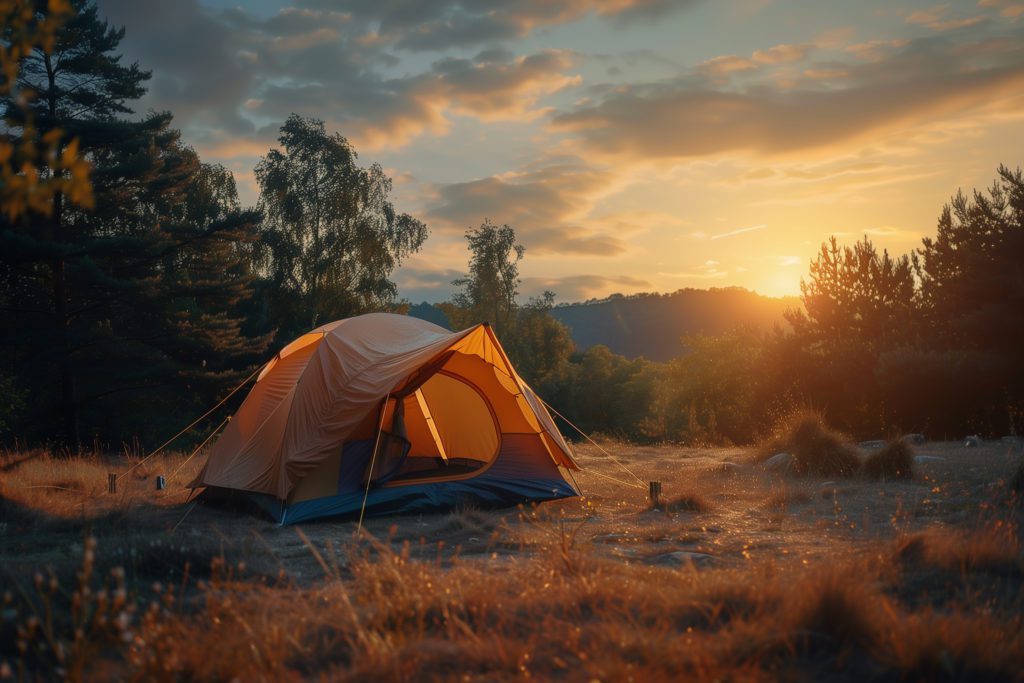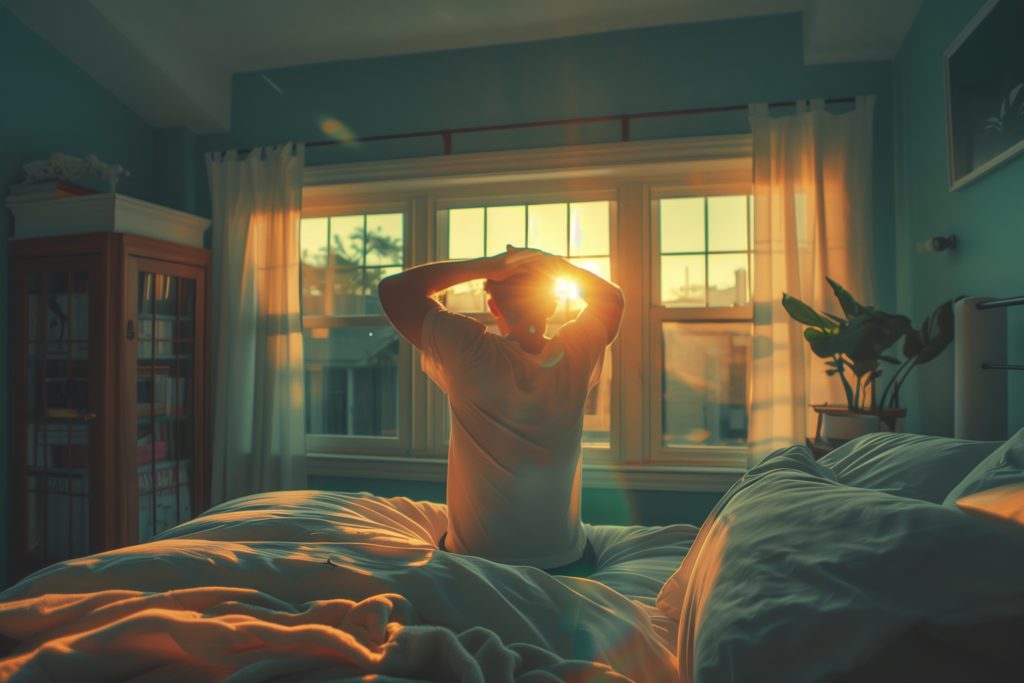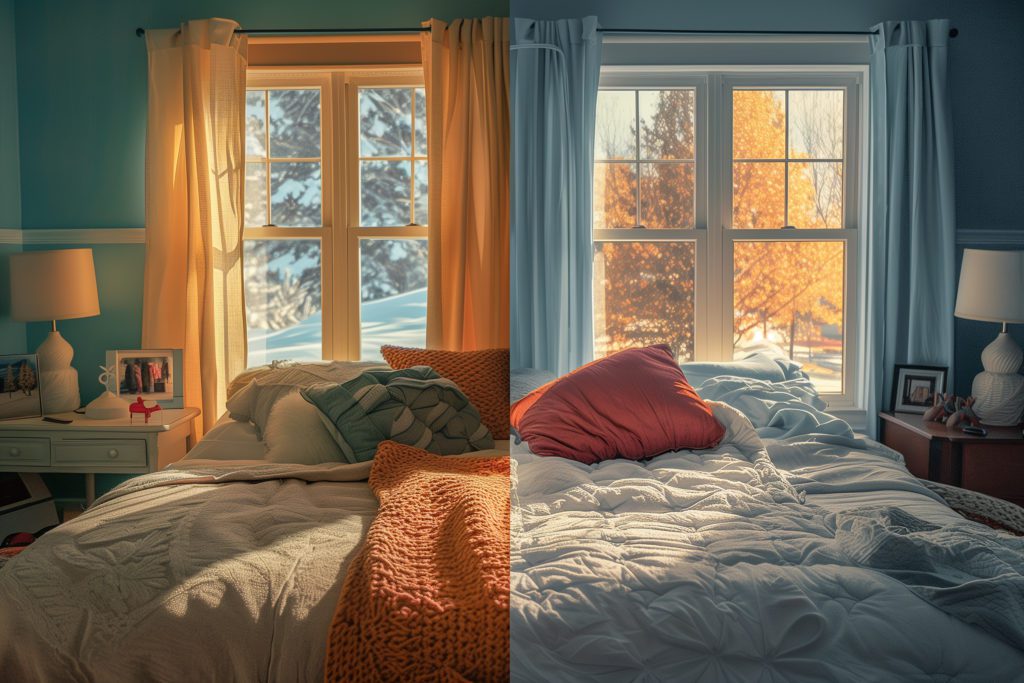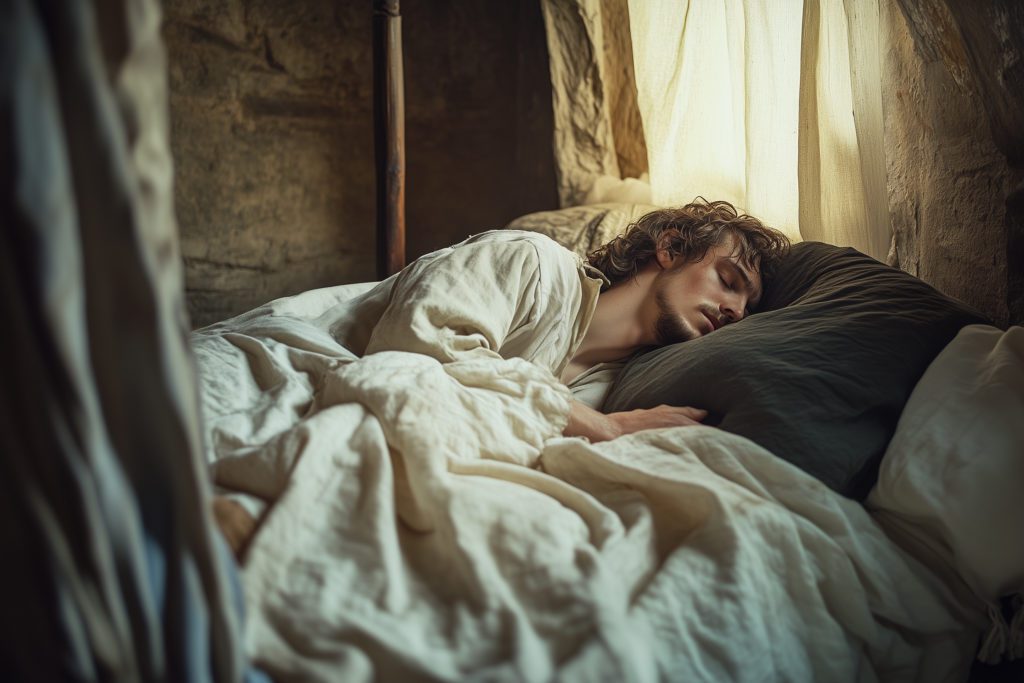
The Science of Sleep and Seasonal Changes
Learn about the link between sleep and seasonal changes to see why you might feel like you need different amounts of sleep in summer and winter.

Can the seasons affect your sleep? There's some pretty strong evidence that the spin of the Earth in your neck of the woods may impact your sleep habits. Even more important is the idea that the seasons can affect sleep quality. By tapping into the science of sleep and seasonal changes, you may be able to enjoy the best sleep possible all year long! Here's what there is to know about how seasonal changes affect sleep.
Hibernation Isn't All in Your Head
If you've ever had an intense urge to simply stay curled up under the blankets on a dim winter morning, you're not alone. The same goes for anyone who has a habit of falling asleep in front of the television after racing home from work during the winter months. Research suggests that humans really do need more sleep during those darker, colder winter months.
When sleep patterns were tracked at Berlin's St. Hedwig hospital, patients slept about an hour longer in winter compared to summer. More significant was the fact that sleepers actually got 30 extra minutes of rapid eye movement (REM) sleep during winter. REM sleep is considered the deep, restorative level of sleep that plays important roles in memory, emotional processing, and healthy brain development. The REM sleep state is where our most vivid dreams occur.
What might surprise you is that living in a bright city isn't enough to undo your biorhythm's inclination to catch up on sleep in response to a lack of light and sunshine. When researchers looked at the effects of winter on sleep, they found that artificial lights that might be expected to override at least some of the natural influence of daylight versus nighttime on human sleeping patterns didn't actually alter seasonal sleep patterns.
Why Do People Need More Sleep in the Winter?
There are many theories about why people need more sleep in the winter. One is that colder weather causes the metabolism to speed up. Extra sleep may be a restorative mechanism that makes up for the extra energy that is exerted during day-to-day activities.
Summer Sleep Disruptions
The summer months are also associated with earlier waking times. Additionally, reports of insomnia and fatigue are actually more common in summer compared to winter. There may be several reasons behind these sleep disruptions that occur in the summer.
Light Exposure
The biggest impact on sleep needs through the seasons may be light exposure. Light exposure is the single greatest external factor affecting the human body's circadian rhythm. As you may already know, the circadian rhythm is the internal clock that controls the body's sleep-wake cycle. Under normal circumstances, circadian rhythm dictates why we feel alert in the morning and tired at night. Increased daylight hours during the summer have been linked with more episodes of night waking and reduced slow-wave sleep.
Light and Darkness Signals Become Blurred
The body's biological clock may struggle with aligning the clock on the wall with what the sky is doing outside. As sunset creeps forward during spring and summer, the body sees light for a much longer period of time each day. Viewing natural light causes the body to remain in daytime mode until close to 9 p.m. during peak summer in many parts of the country! As a result, the body's mechanisms believe that they need to stay awake.
Melatonin
Longer days actually delay the body's natural release of melatonin. Melatonin is an important sleep hormone that signals to the body that it's time to rest. Normally, the body begins to release melatonin as the day grows darker. Melatonin decreases in the morning when the sun rises for the day. Longer daylight hours can dramatically reduce the body's melatonin-producing window during the summer compared to the winter. This shift in melatonin release may be one of the reasons why many people feel like they actually need less sleep during the summer.
Hot Temperatures
Altered sleeping patterns in the summer aren't necessarily all caused by light changes. For many people, hot and humid weather makes sleep difficult. The body's ability to fall asleep, remain asleep, and actually get restful sleep are more dependent on temperature than most people realize! It has to do with the fact that the body is not able to regulate temperature as efficiently as it can during certain sleep stages. When we experience temperature extremes while asleep, this increases the chances that our bodies will stir in order to properly regulate in response to the temperature.
Lifestyle Factors
Is your social calendar completely different in the summer? If you're like most people, summer is a time when you spend more time with friends, pack more activities into your daily schedule, or simply stay out later. The arousal caused by socializing may influence sleep patterns for some people. In addition, eating or consuming alcohol later in the day while taking advantage of extended sunlight can also reduce sleep quality.
Of course, you may be getting less sleep because you're squeezing more into each day during the summer simply because you can. Longer sunlight hours may have you feeling inspired and energized to wake up earlier. This can also cause you to stay up later. While the sunlight feels amazing and energizing in the moment, there's no way around the fact that you may be reducing your normal sleep time by several hours when following a summer schedule.
Good Sleep Is Always in Season
While humans don't hibernate, science suggests that we do tend to sleep slightly more during winter compared to summer. However, the longer sunlight exposure available to us during summer months may not actually be great for our sleep quality even though it feels good. The bottom line is that maintaining the proper amount of sleep on a consistent basis all year long is the best way to enjoy optimal mental health, physical health, and energy levels. For the average person, that means getting between seven and nine hours of sleep per night.
FAQ
Why do I wake up sweating in winter even if my room is cold?
It’s probably because of heavy blankets, pajamas, or even the heater being too high. Your body still regulates temperature while you sleep, and overheating can trigger sweating—even if the air around you feels chilly!
Why do I wake up ridiculously early in the summer even when I’m still tired?
Your body reacts to sunlight, so if bright summer mornings are creeping into your room, your brain might decide it's time to wake up—even if you were up late the night before. Blackout curtains can be a game-changer!
Why do I struggle to fall asleep earlier in winter even though it gets dark so fast?
Just because it’s dark outside doesn’t mean your body is ready for bed. If you’re spending evenings under bright indoor lights or scrolling on your phone, your brain might still think it’s daytime. Try dimming the lights an hour before bed!
Why do I feel so sluggish in winter, even after a full night’s sleep?
Blame the lack of sunlight! Less daylight means lower serotonin levels, which can leave you feeling groggy. Plus, cold weather makes people less active, which can slow metabolism and energy levels.
Why do I sleep worse on humid summer nights even with air conditioning?
Humidity makes it harder for sweat to evaporate, keeping your body from cooling down properly. Even if the AC is on, excess moisture in the air can still make you feel sticky and restless.

Written by
Emily Mendez
Emily Mendez is a former therapist and mental health author. She is one of the leading voices in mental health. Emily's writing has appeared in eCounseling, SonderMind, and more. Emily is frequently interviewed by Healthline, Fatherly, INSIDER, Family Circle, and other national media for her advice and expert opinion on the latest mental health topics.
Download Pillow
Get help
Press & News
Legal
Connect
X (Twitter)
Company
Copyright © Neybox Digital Ltd.



